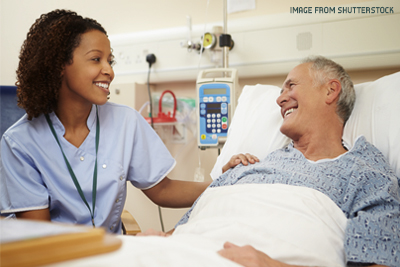
There is no doubt that the hospital can be the best place to be when recovering from an injury or infection, but, just like anywhere else, it’s also a place where accidents can happen. Certain medicines can make someone drowsy and even something as simple as getting up to use the toilet can result in a fall. Although accidents are inevitable, AARP expert Sharon O’Brien, a pulmonologist, shares a few tips that you can do to prepare yourself from common health hazards in the hospital.
Reduce your risk of falls
Believe it or not, your chances of falling increases once you are admitted to the hospital. When in the hospital, depending on the type of treatment you need, new medicines, medical equipment and change in diet can cause disorientation, fogging your mind which can trip you up, literally.
O’Brien recommends calling someone for help before attempting to get up or walk. Even if you feel like you will be okay, it is best to have another set of arms there to assist and watch just in case.
Stick to your normal routine
When we feel sick napping seems to be the only thing we want to do, but O’Brien suggests sticking to your daily normal sleep routine. Being in the hospital is never comfortable, but doing things to normalize your daily routine will help. Things such as opening the blinds in the morning to see the sunlight, asking for earplugs to block out any unwanted noise, and having your own blanket can help make your hospital stay feel a bit more like home.
To avoid any falls and disruptions during the night, try asking your nurse/doctor to take you to the bathroom before bedtime.
Ask people to wash their hands
Asking people to wash their hands before coming into your hospital room is the best way to avoid any infections/bacterias during your hospital stay.
Follow and understand discharge instructions
We all know the feeling of wanting to be home after being in the hospital, but its important to review and understand what’s asked of you when you discharge. If there is any confusion with your instructions for recovery, please ask for clarification.
Make sure to understand what your next steps are. Ask if you need a follow up appointment, and if so, when will you need to make it.
Finally, O’Brien recommends asking for after-hours numbers. In the event that you need help once you get home, you'll have it.
Source: https://www.aarp.org/health/conditions-treatments/info-2020/avoiding-hospital-related-illness.html

